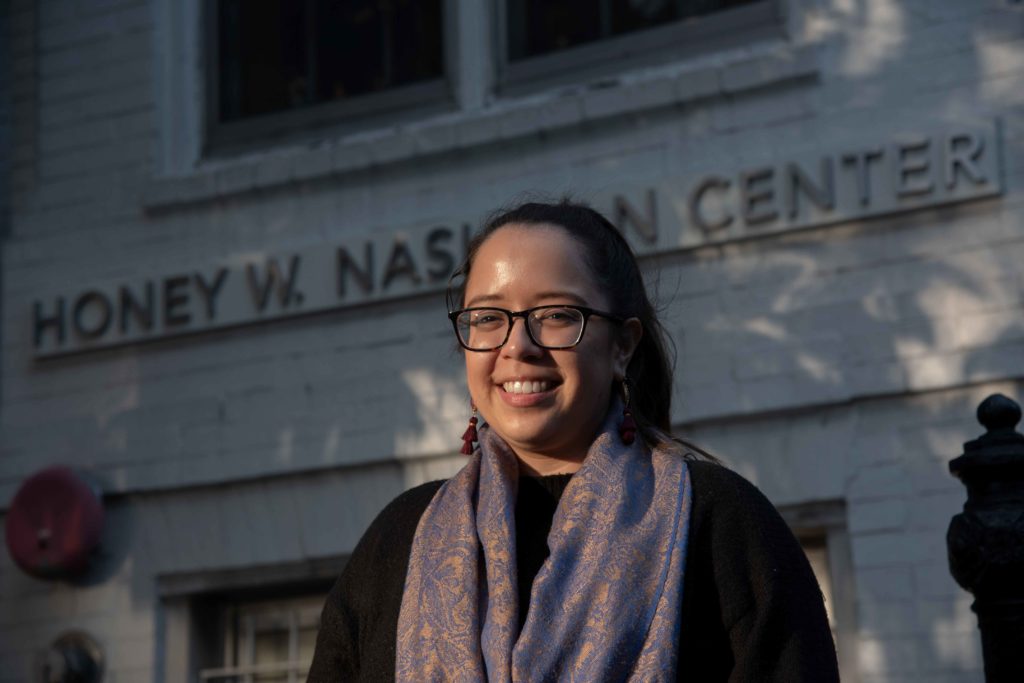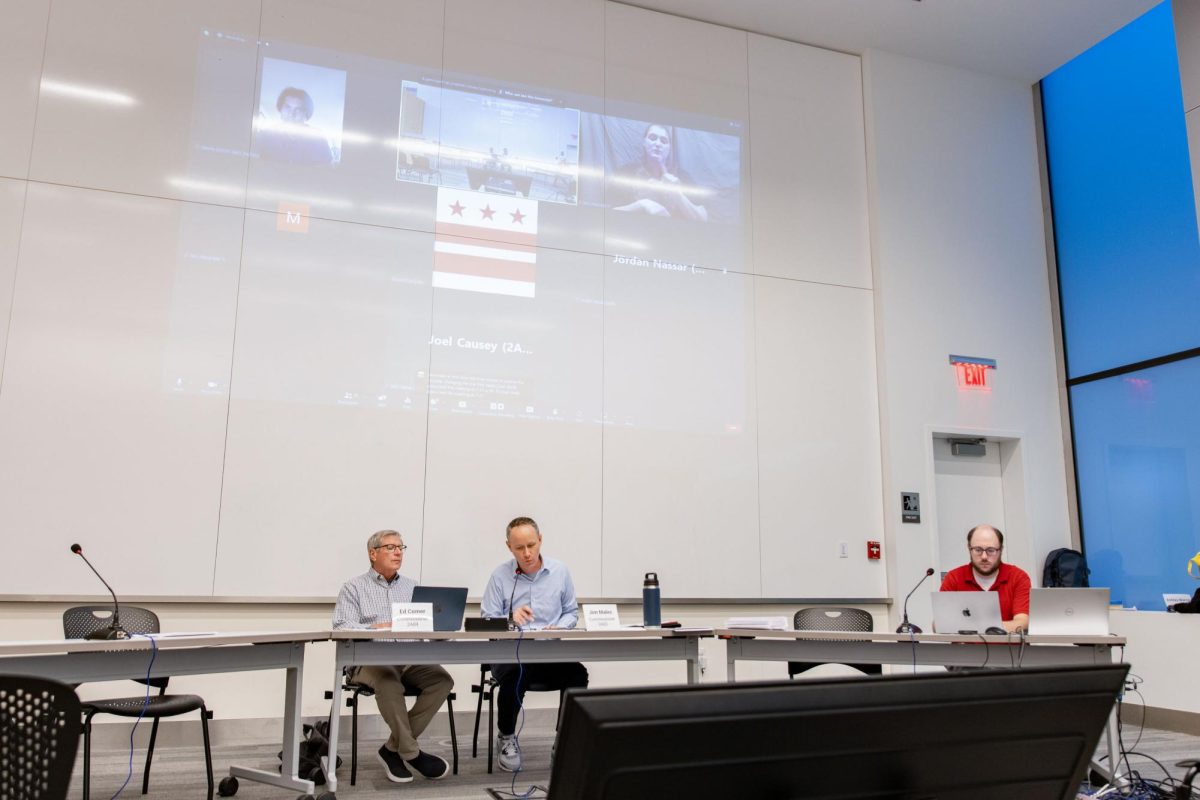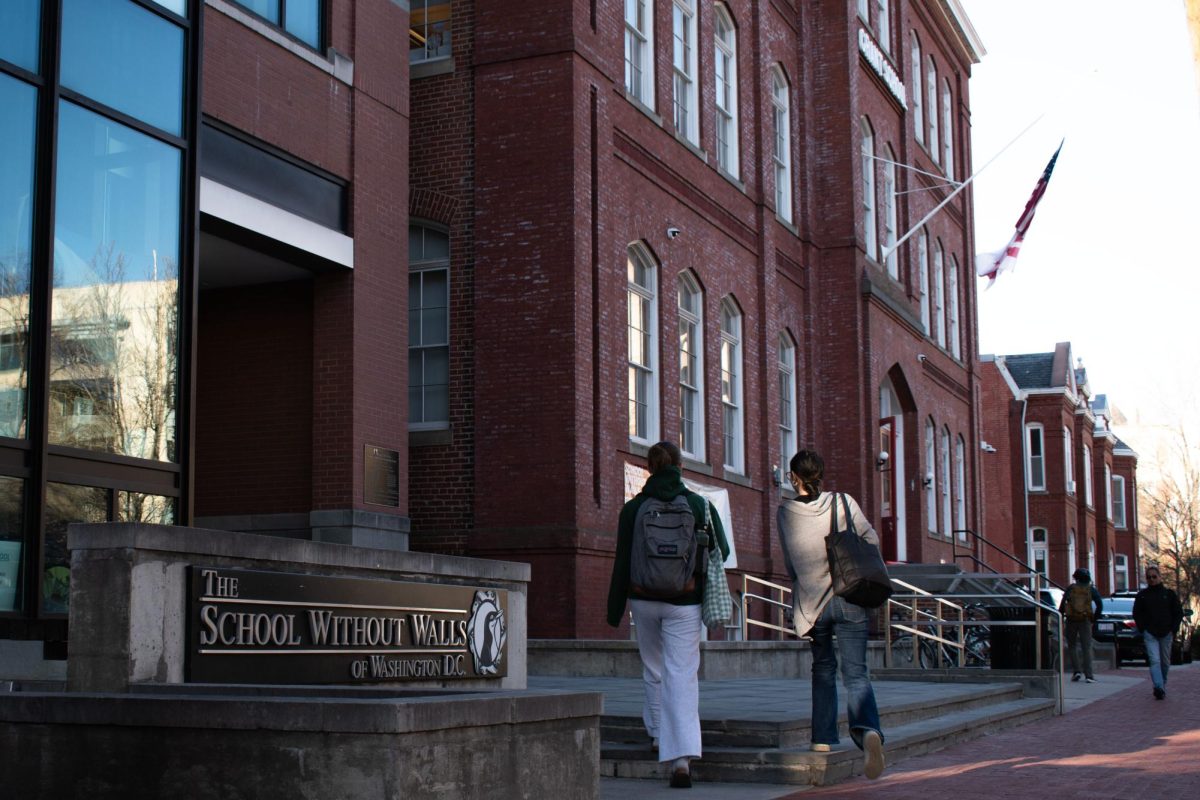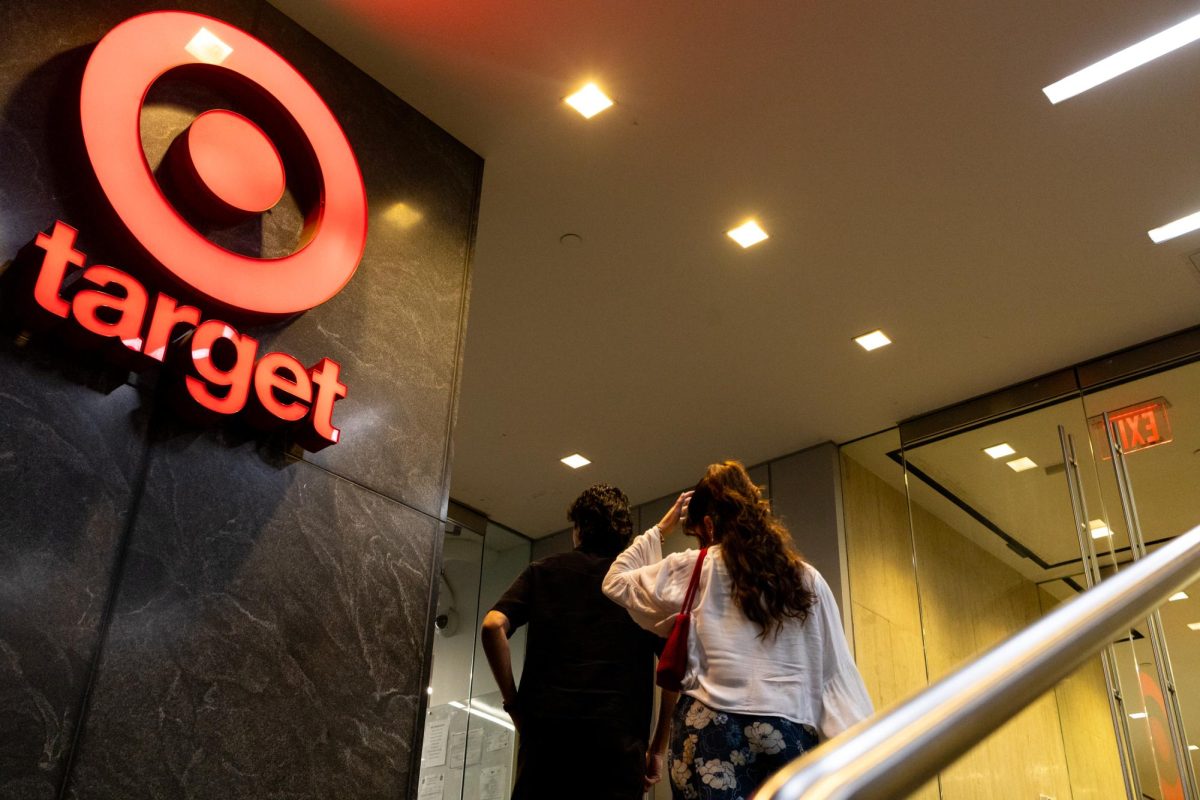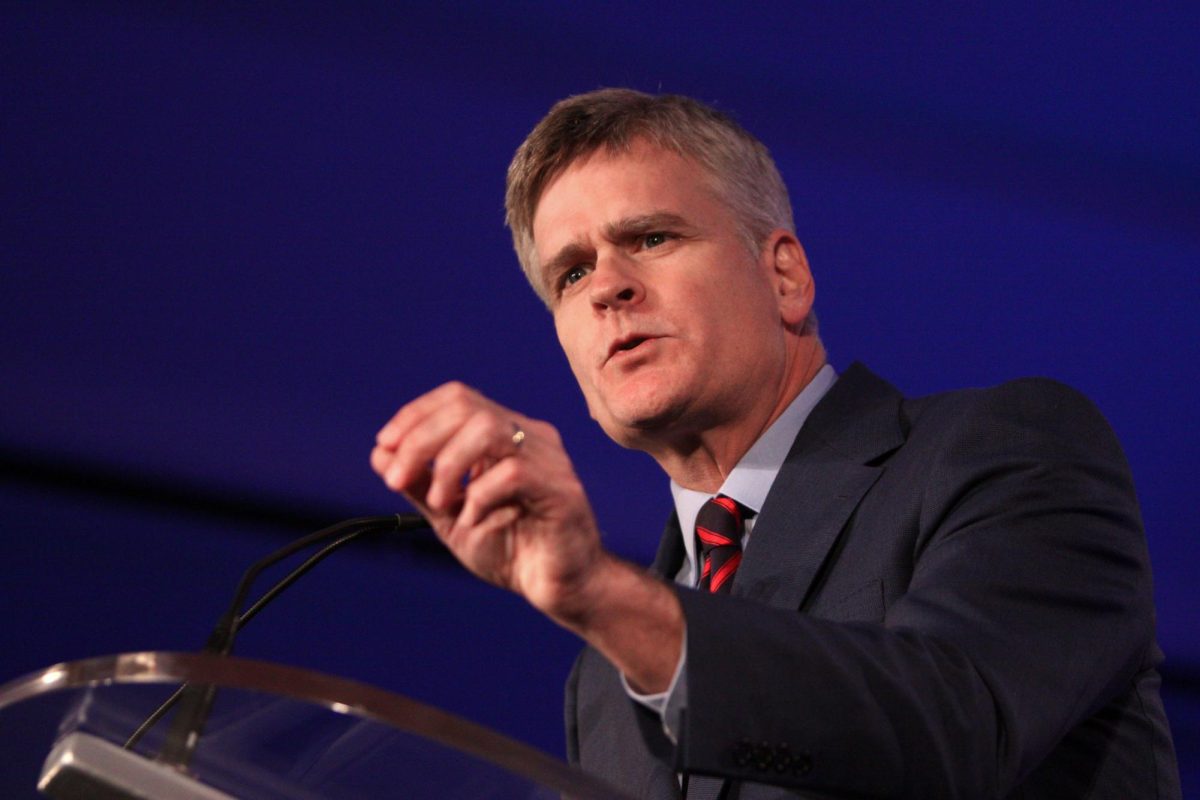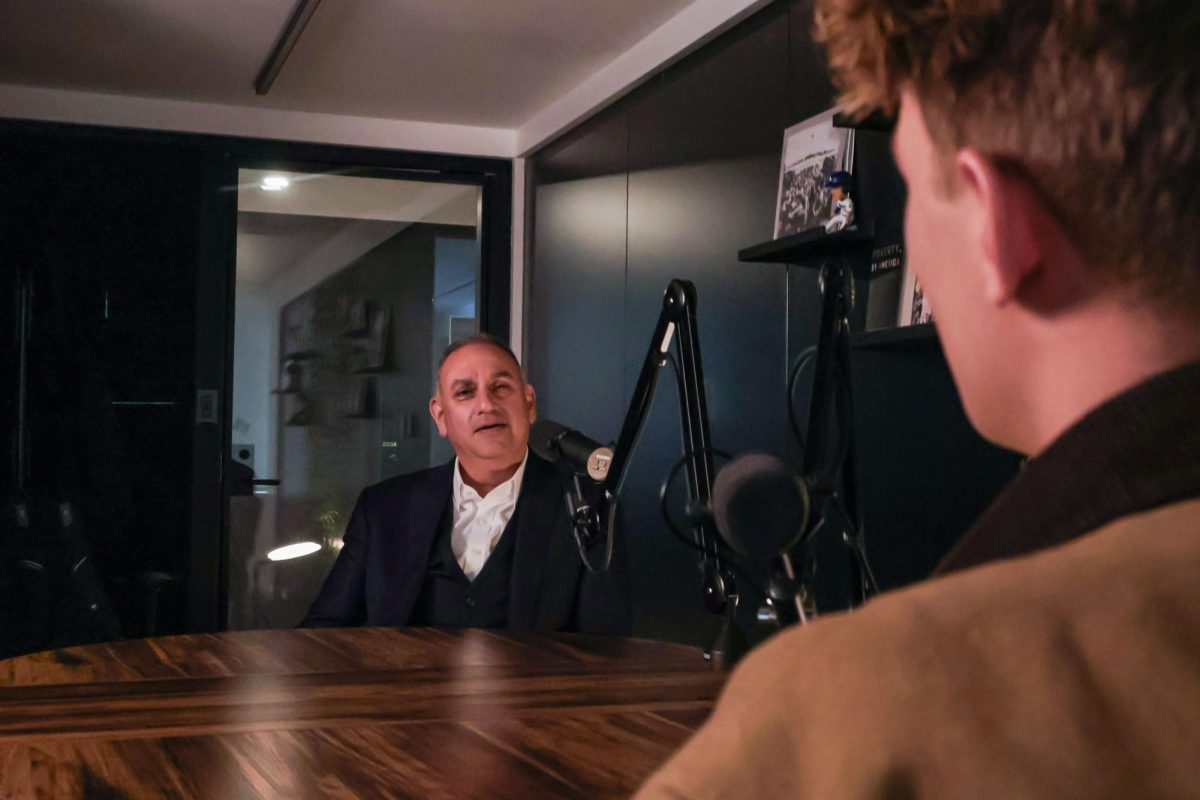The Nashman Center’s first-ever week focused on increasing the number of active citizens in the GW community inspired participants through “collaborative” discussions, officials said.
Members of GWupstart, a program located in the center that conducts “social innovation” training and mentoring, hosted the University’s first Changemaker Week, a series of events open to the GW community focused on finding solutions to deal with ongoing social issues like climate change and low voting rates. Officials said they hope the week has inspired participants to take more active roles in their local community.
Dania Castro, the program manager for service and social innovation at the Nashman Center, said the week went better than she expected, with a “great” turnout and students who seemed enthusiastic while participating in the events.
“We had a really great turnout, and they were very excited and really engaged in the conversations,” Castro said of the attendees.
The center held 15 events over the course of seven days, focusing on topics related to professional development and social engagement, including a pitching training session, a program on voting and a workshop on how to engage in productive dialogue to enact social change, the center’s website states.
She said students who attended the events noted in surveys distributed after the events that they were interested in further discussing the topics presented at the events.
Castro said she was happy to hear from the surveys that students felt comfortable and thought the events were a “really great learning experience.” She wants to ensure more people are aware of these events through greater advertising over social media in the future to further build on the week’s success, she said.
Castro said the collaboration and initiative demonstrated by the student leaders in organizations like Sustainable GW and faculty members who were involved in planning made it hard to pinpoint one specific event that she thought was the most successful.
“Even if one person comes and they take a lot out of the experience, it was more than worth it,” Castro said.
She said the week was a “campus effort” that several offices, like the Office of Sustainability and the Office of Innovation and Entrepreneurship, helped to plan.
She said plans for the future are already in the works, including a video about “changemaking” internationally and a social innovation workshop in partnership with the sustainability office.
Amy Cohen, the Nashman Center’s director, said one of the high points of the week was the keynote speaker event Thursday featuring Nicole Cardoza, the executive director of Yoga Foster, a non-profit organization that seeks to bring yoga into primary and secondary school classrooms. The event drew in about 65 community members, she said.
Cardoza discussed how she became a socially involved entrepreneur and how to help people deal with issues like anxiety through yoga and meditation, according to the center’s website.
“Bringing her here really is inspiration for our students because the programs that we run here are designed to help students to be able to be those kinds of entrepreneurs and to take their ideas for real social change and for social innovation and make them a reality,” Cohen said.
She said the center regularly partners with other offices at the University and members of the GW community to increase outreach and get more people involved in their events, which are often marketed through social media.
“What we do is not just by us and for us, it’s for everyone in the University, and so we have a regular partnership with the Office of Sustainability and with many of the other partners, so it just comes together,” Cohen said.
She said she hopes the week will help increase awareness of the center’s events throughout the academic year.
“Changemaker Week is a highlight of the sort of things that we do,” she said. “So we’re doing changemaking all the time.”
Tara Scully, the director of the sustainability minor program, said she was involved in planning a “teach-in” Wednesday, in which faculty experts discussed climate solutions with students at Bard College’s Center for Environmental Policy in New York. She said one of the goals of the event was to assess what students feel would work best to address climate change through social innovation.
Scully said the teach-in focused on showing students how to best serve their own communities through advocacy and direct action. Environmental activists often try to come up with their own solutions to address the needs of a community they do not belong to, but the best approach is for activists to work directly alongside the community needing solutions, she said.
“The community that we’re trying to help is the student body, mainly, but the student body in context of how you go out as a changemaker and make change,” she said.
Scully said the event was run entirely based on the time, resources and expertise of a “network” of student-led organizations like Sunrise GW and Take Back the Tap, which served as a source for student speakers at the teach-in.
“The students have so much power and passion here, so I think this is a great way to help solidify that so that students understand they have these outlets,” she said.
Ilena Peng contributed reporting.


